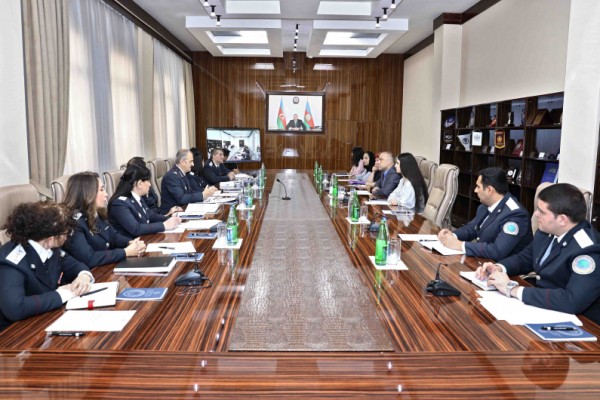Repository of Practices

Engagement of migrants in migration management of Azerbaijan
Secondary GCM Objectives
Dates
Type of practice
Summary
The Migrant Council under the State Migration Service of the Republic of Azerbaijan was established to ensure more active participation of migrants residing in Azerbaijan in the migration management of the country, to improve the effectiveness of the protection of their human rights and freedoms, the quality of services provided to them and to ensure transparency, as well as to assess the impact of the decisions taken in the sphere of migration on daily life of migrants. Currently, the Migrant Council consists of 8 members. Members of the Migrant Council are selected among migrants based on a number of criteria, such as long-term residence in the territory of Azerbaijan, having close contacts with communities of their country and diaspora organizations operating in Azerbaijan, as well as other social activities. The Council have advisory status under the State Migration Service. The Chairman of the Council is elected by a simple majority vote of the members of the Council.
Organizations
Main Implementing Organization(s)
Detailed Information
Benefit and Impact
Adopting a multipronged approach to policymaking is essential in order to consider different viewpoints and interests. Taking into account the situation and problems of migrants while defining state policy in the sphere of migration and determining the directions of activity, the Migrant Council leads to the formation of a more effective migration policy.
The Migrant Council also promotes an open dialogue between migrants and public officials in order to bridge the gap between decision makers and those affected by their decisions. Regular consultations and conversations with the Council can ensure that the government is better informed about the needs of the migrants. Council members, closely involved in the projects and events in migration sphere, play an important role in determining the future direction of migration management.
Furthermore, ensuring the effective involvement of migrants in migration issues can be a major milestone for their effective integration into local society by fostering investment, trade and technology linkages.
Key Lessons
In addition, the participation of this Council in migration management should be direct and tangible. This task has also been solved, and the participation of the Council is ensured by direct contacts with the employees of the State Migration Service, their participation in events in the migration field, as well as the organization of special meetings according to their needs.
Recommendations(if the practice is to be replicated)
Innovation
Additional Resources
Date submitted:
Disclaimer: The content of this practice reflects the views of the implementers and does not necessarily reflect the views of the United Nations, the United Nations Network on Migration, and its members.
More Related Practices:
- Comité de Cultura de Paz y Derechos Humanos
- Disaggregated Data Action Plan (DDAP) - Statistics Canada
- Immigration, Refugees, and Citizenship Canada’s Use of Gender Based Analysis Plus (GBA Plus)
- Alianza Social IntegraCallao
- A Journey of a Thousand Mile Begins with a single Step: Djibouti’s Experience in Strengthening Migration and Displacement Data Governance
Peer Reviewer Feedback:
*References to Kosovo shall be understood to be in the context of United Nations Security Council resolution 1244 (1999).
Newsletter
Subscribe to our newsletter.